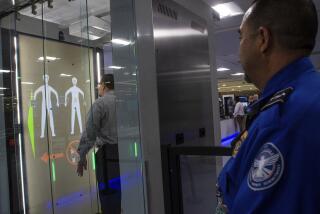US Sprint to Offer Voice-Activated Telephone Dialing
- Share via
Some US Sprint customers will soon be able to phone home by simply saying “phone home.”
The nation’s third-largest long-distance carrier said Monday that it will begin offering a service by this summer that will allow a caller to phone a destination, such as home or office, simply by talking to a computer on the line rather than dialing a series of numbers.
The service will be particularly useful to frequent travelers who rely on pay phones to make long-distance calls.
The new service will give Sprint, a subsidiary of Kansas City, Mo.-based United Telecommunications, a jump on its competitors in applying the emerging technology of voice recognition.
Here is how Sprint’s system will work: Customers desiring the extra-cost feature will record a voice sample as their code to gain entry into the network. In addition to a spoken password, they will utter a personal identity number--one that they can dial if they get a sudden attack of laryngitis.
The computer will match the distinctive sounds of the voice against a personal prerecorded sample and, if satisfied, request through its own synthesized voice what number the customer wants to call.
Sprint customers also will be able to compile personal directories of numbers that they then will be able to call merely by reciting the identifying word that they recorded for each, such as “my home” or “my boss.”
“We have made tens of thousands of voice-recognition calls testing this product,” said Larry Lake, Sprint’s senior vice president for product management. The company even hired professional impersonators to try to fool the computer, but none succeeded, spokesman Syd Courson added.
Sprint will couple its voice-recognition system with a message-sending service that will let customers who cannot complete their calls record a message for transmission later. The number will be redialed at 15-minute intervals for up to three hours or until the call is completed--a convenience for the customer and a financial reward for the company, which gets nothing for uncompleted calls.
Courson said Sprint developed the system originally to combat fraudulent use of the company’s charge card. That problem has been all but resolved by other techniques, he said, but employees working with voice-recognition technology became so enthusiastic about its applications that the company decided to continue with it.
More to Read
Inside the business of entertainment
The Wide Shot brings you news, analysis and insights on everything from streaming wars to production — and what it all means for the future.
You may occasionally receive promotional content from the Los Angeles Times.








